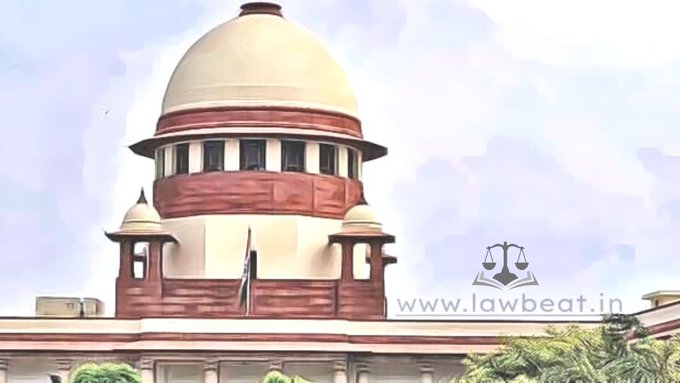Deceitful religious conversions not part of Chapter-XV of the IPC: Adv Ashwini Kumar Upadhyay to SC

Chapter XV (Section 295 to 298) of the Indian Penal Code deals with offences and punishment of offences relating to religion.
Religious conversion by intimidation, threats, luring through gifts, monetary benefits and by inducement is not part of Chapter-XV of the IPC, stated Advocate Ashwini Upadhyay in his written submissions before Supreme Court.
Upadhyay filed the written submissions in the Public Interest Litigation that he has moved seeking measures to control forceful and deceitful religious conversions.
He stated that many States have become a safe place for foreign-funded individuals, NGOs and missionaries to indulge in religious conversion and they have established their offices not only in the border and tribal areas but also in the National Capital Delhi(Okhla, Jamia Nagar, Batla House, Kali Bari Markets).
It has been submitted by him that women and children are the main targets of foreign-funded missionaries and conversion groups and the Centre and the States have not taken appropriate steps to control religious conversion in the spirit of Article 15(3).
“The situation is alarming as many individuals and organizations are carrying mass conversion of socially and economically underprivileged and SCs-STs either by use of force or by allurement thus exploiting their poverty,” he stated.
He further stated that wrongful religious conversion directly offends the right to life, liberty and dignity guaranteed under Article 21, but, due to a legal vacuum, unethical predatory conversion strategies are commonly used in Delhi to convert socially and economically backward citizens.
One method is material enticement by which economic, educational, medical or social assistance is offered on the condition that the person converts; another is the denigration of the person's religion to make a new religion appear superior, he claimed.
“A third unethical, predatory method is the promotion of ‘bigotry’ i.e., knowingly and intentionally promoting religious hatred & violence. Predatory proselytization tears apart the fabric of the communities where it occurs and has led to social disorder and unrest", he stated.
It has been submitted in the reply that the right to religion guaranteed under Article 25 is not an absolute right but subject to public order, health and morality. "Therefore, religious conversion by using miracles, superstition and black magic is not protected under Article 25. However, due to the outdated ineffective provisions of the IPC in this regard, foreign funded Individuals and NGOs are converting EWS-BPL category citizens to other religions by intimidating, threatening, deceivingly luring through gifts and monetary benefits," it read.
Upadhyay further asserted that Centre and States have to abide by the Constitution and respect its ideals. "They must uphold and protect the unity and integrity of India; promote harmony and spirit of brotherhood; renounce practices derogatory to dignity of women; value and preserve rich heritage of composite culture; develop scientific temper, humanism and spirit of inquiry and reform; and strive towards excellence in all individual and collective activities', his reply stated.
The reply further mentioned the massive foreign funding through Money Laundering and FCRA to NGO and Individuals from Gulf and West Countries to convert Indians. "Although, Centre has cancelled the FCRA license of few NGOs but neither it amended the FCRA, Money Laundering Act, Benami Property Act and Black Money Act nor it changed the VISA Rules for religious preachers and missionaries," the reply read.
In view of the aforesaid, Upadhyay prayed the court that the Central Government be directed to review FCRA Rules for foreign-funded NGOs and individuals and take stringent steps to control funding through Hawala and FCRA.
